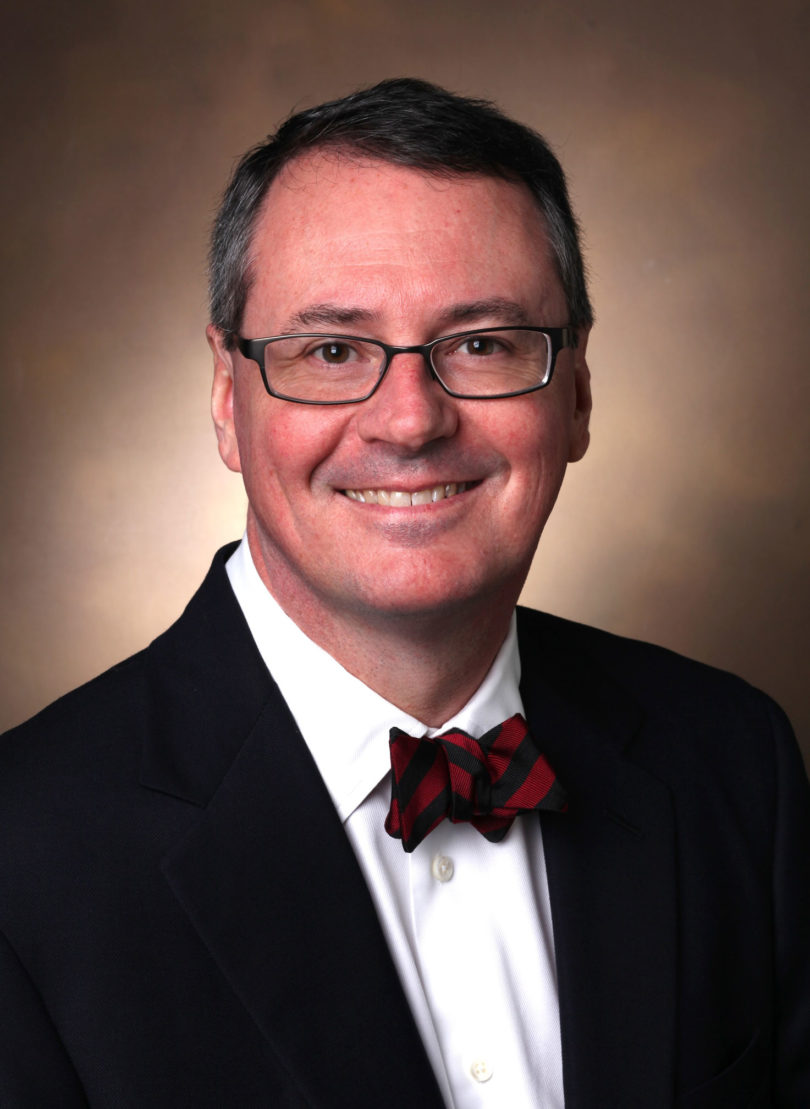Sporting rectangular glasses and a neatly knotted bow tie, Craig H. Kennedy’s erudite appearance suggests that of a traditional dean from a bygone era.
Despite the vintage style, Kennedy-who joined UGA’s College of Education as dean in January-is forward-thinking in the way he views his current role as dean of a major college at a large land-grant institution such as UGA.
“For a contemporary dean, it’s gone from being a scholar-professor who spends some of his time doing administrative work for the faculty to really being a chief executive officer,” Kennedy said. “It’s really a full-time commitment.”
Nearly a year into his tenure, Kennedy is trying to steer the education college toward expanding its research efforts, adapting to the needs of today’s students and building national recognition.
Kennedy, who previously served as senior associate dean at Vanderbilt University’s Peabody College, is the new face of one of the nation’s largest education colleges. UGA’s education college has 230 faculty, 4,500 students and 140 staff.
“We graduate about 600 teachers a year and almost all of them stay in Georgia,” Kennedy said.
The college also offers a diversity of academic pursuits with more than 60 degree programs from bachelor to doctoral degrees.
“We’re one of the most complex education colleges,” Kennedy said. “Only about half of our degree programs and faculty focus on teacher education.”
One of Kennedy’s priorities during his short time at UGA has been encouraging education faculty to go after the big federal grants for education research.
“We need to be more engaged in creating original knowledge,” Kennedy said.
Already, Kennedy said, COE has a number of well-respected, world-class scholars such as Joseph Tobin, the Elizabeth Garrad Hall Professor of Educational Theory and Practice.
Tobin examines cross-cultural understandings of instruction and language development, comparing how teachers and families in North American, Latin American and Asian cultures learn. That research brings in funding from the National Science Foundation and the Department of Education.
Kennedy said these types of grants allow faculty to expand operations and study issues on a larger scale, which helps those studies land in national journals and draw more accomplished doctoral students to UGA.
Given the shifting landscape in what students expect from degree programs and the technological shift in teaching tools, Kennedy also is starting a conversation about changing how, when and where its professional-oriented degrees are taught.
“I’m asking the entire college to engage in an experiment over the next couple of years related to teaching and the delivery of instruction,” he said. “What I’m challenging the faculty to do is to look at what the program should look like in (the year) 2025.”
One consideration is how to accommodate professional students-many of whom are concentrated in the Atlanta area and may not be able to attend class in Athens during the 9 a.m. to 5 p.m. workday.
“We’ve got to find the right way to go to them some of the time and for them to come to us some of the time,” Kennedy said. “We’ve got to find the right blend.”
As the college focuses on expanding research and accommodating new students, Kennedy said it will be his job to promote the college’s many existing strengths.
While UGA’s education college is well known within Georgia, Kennedy said that it’s time to think bigger than that.
“The College of Education needs to really increase its national reputation,” he said.
That means the college needs to raise its profile among other education colleges and in Washington, D.C.
“Because of the great work we’re doing here (in Georgia), we should have a greater voice nationally,” Kennedy said. “We are a hotbed of ideas that are part of the national discussion on education.”
For example, the COE is testing clinical training in public school classrooms for students who want to be teachers-something that’s only talked about on the national level.
This training goes beyond the student-teaching model. In clinical training, UGA faculty are going into Clarke County public schools to hold courses for education college students and observe them as they learn to teach.
“The students are leaving the degree program with a lot more clinical experience, with a lot more training,” Kennedy said. “We’re doing it here, and we’re doing it really well.”
Kennedy’s enthusiasm for the education college carries over to his excitement about the direction of UGA. Kennedy joins a number of other recently appointed deans and a new university president in providing fresh leadership at UGA.
Kennedy said, “UGA with Jere W. Morehead as president is poised to take strides forward as a university and as a nationally known research university. It’s an exciting time to be here.”





